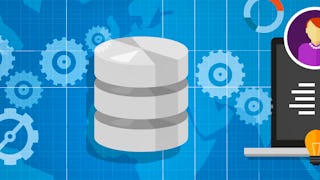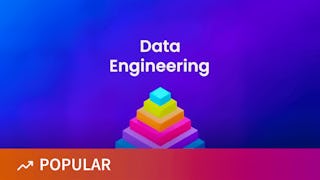![[Featured Image] A data visualization engineer presents graphic data to a team of colleagues.](https://images.ctfassets.net/wp1lcwdav1p1/3rFIpxmRWo7HkNofpvre7O/f71ec775784280d67b39f86a4ec0d75e/GettyImages-1452684881.jpg?w=330&h=216&q=60&fit=fill&f=faces&fm=jpg&fl=progressive)
What Is a Data Visualization Engineer?
Data visualization is crucial for business strategies, and data visualization professionals are in demand. Discover more about becoming a data visualization engineer, the nature of their jobs, and the salary you can expect.
February 26, 2025
Article

![[Featured Image] A data analyst points at a large screen with charts and graphs about data analytics and lambda architecture.](https://images.ctfassets.net/wp1lcwdav1p1/1sQuh2LWyZ4skMB1fiKwYM/e21bca8cc7e07a2e68fcb624154efdbe/GettyImages-1486544817.jpg?w=330&h=216&q=60&fit=fill&f=faces&fm=jpg&fl=progressive)
![[Featured image] Project team members sit at a boardroom table with their laptops and tablets, discussing the project using conceptual data modeling.](https://images.ctfassets.net/wp1lcwdav1p1/1zjJI7fqGEHJK5xkLX43wI/926b163f7a1fe8176120b98c3193450e/GettyImages-1875447032.jpg?w=330&h=216&q=60&fit=fill&f=faces&fm=jpg&fl=progressive)
![[Featured Image] Two learners sit on a bench outside discussing data mining architecture and reviewing their notes from class on a laptop computer.](https://images.ctfassets.net/wp1lcwdav1p1/TNr5VReTbTgaWC6JxcgLs/f490c07adfa08c61695b24aa943a2831/GettyImages-2163169093__1_.jpg?w=330&h=216&q=60&fit=fill&f=faces&fm=jpg&fl=progressive)
![[Featured Image] An SQL specialist teaches a professional in a work environment, discussing ways to improve SQL skills.](https://images.ctfassets.net/wp1lcwdav1p1/7EZutVBmBRPniid6Xe8SRX/7a15ec9851a36b285a8c7df574d87e13/GettyImages-1533018004__1_.jpg?w=330&h=216&q=60&fit=fill&f=faces&fm=jpg&fl=progressive)
![[Featured Image] A mentor shows a new employee how to use AI tools to improve data quality as part of their workflow.](https://images.ctfassets.net/wp1lcwdav1p1/6SOfqVogufn1kL9lUHRFP7/95d389f607c8a6798179b078ca7c022e/GettyImages-2215037809.jpg?w=330&h=216&q=60&fit=fill&f=faces&fm=jpg&fl=progressive)



![[Featured Image] Person explaining data lineage to an unseen team at the office. The person stands by a whiteboard with statistical graphs, giving a presentation to an unseen audience.](https://images.ctfassets.net/wp1lcwdav1p1/7Fj4qotDte8kH0hAHINGka/0529f97579c279d911afac8d0f212b89/GettyImages-1437209178.jpg?w=330&h=216&q=60&fit=fill&f=faces&fm=jpg&fl=progressive)
![[Feature Image] Two data professionals review their data preprocessing steps together on a laptop to make sure they didn’t miss anything important.](https://images.ctfassets.net/wp1lcwdav1p1/4QlrZ7S6117hxGglBQHYjw/a2954e9514029772a883512f7c7d07b6/GettyImages-1848414289.jpg?w=330&h=216&q=60&fit=fill&f=faces&fm=jpg&fl=progressive)
![[Featured Image] A doctor in a white lab coat stands in front of several computer monitors viewing information created by data lake architecture in a hospital radiology department.](https://images.ctfassets.net/wp1lcwdav1p1/17EiA1aQy03IOvP0LyWjfv/a4a6529a5782ab20da271bc417920030/GettyImages-1364383487.jpg?w=330&h=216&q=60&fit=fill&f=faces&fm=jpg&fl=progressive)
![[Feature Image] A future data scientist researches data structures certification and course options to advance their career.](https://images.ctfassets.net/wp1lcwdav1p1/71szwdbnEcgj7nQg6vcY42/977ac67a519f99848de5c46d502f50df/GettyImages-1390307383.jpg?w=330&h=216&q=60&fit=fill&f=faces&fm=jpg&fl=progressive)
![[Featured Image] Professionals in a work environment having a meeting discussing database management tools while a screen in the background displays relevant data.](https://images.ctfassets.net/wp1lcwdav1p1/2b7U1UyHwgnk7mjo0rz7Q4/e1fe0ace39472d554546c5f83df7422f/GettyImages-2157239467.jpg?w=330&h=216&q=60&fit=fill&f=faces&fm=jpg&fl=progressive)
![[Featured image]: Two people sitting in front of monitors use data cleaning tools to prepare data for analysis.](https://images.ctfassets.net/wp1lcwdav1p1/7nKU5kSbpR3y4dJnKMctVT/b4fa6de14d67f053b059e8a520171b6b/GettyImages-1369567969.jpg?w=330&h=216&q=60&fit=fill&f=faces&fm=jpg&fl=progressive)
![[Featured Image] Business professionals in a meeting discussing data governance, including how to collect, secure, and ensure the quality of data, with a graph displayed on a TV.](https://images.ctfassets.net/wp1lcwdav1p1/6c8U1f4QP2tKSEOkVSKJGx/90df4d9025ced4c250c4086c69908a0b/GettyImages-2205738340.jpg?w=330&h=216&q=60&fit=fill&f=faces&fm=jpg&fl=progressive)
![[Featured Image] A team in a meeting at a workplace, discussing the best data privacy certification.](https://images.ctfassets.net/wp1lcwdav1p1/2DpI7irfLOH6lwolfz7YMb/2835a9f1169703aece4a5ce57a202a94/GettyImages-2169143029.jpg?w=330&h=216&q=60&fit=fill&f=faces&fm=jpg&fl=progressive)
![[Featured Image] Professionals in a workspace reviewing data charts while discussing certified data protection officer responsibilities.](https://images.ctfassets.net/wp1lcwdav1p1/4hfO6hVx4y61rk3IxGORzC/a01ee72f75c29108195986d8bfea60db/GettyImages-964831480.jpg?w=330&h=216&q=60&fit=fill&f=faces&fm=jpg&fl=progressive)
